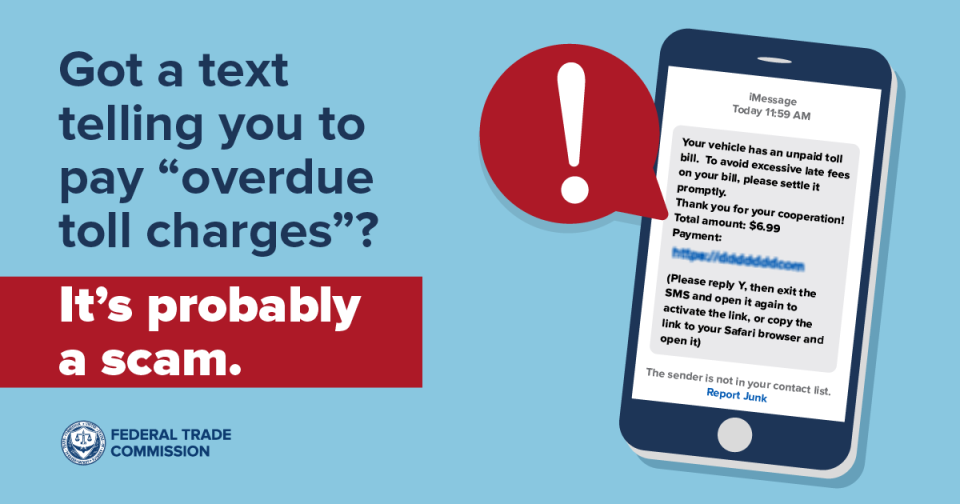Whether you’ve driven through a toll recently or not, you might’ve gotten a text saying you owe money for unpaid tolls. It’s probably a scam. Scammers are pretending to be tolling agencies from coast to coast and sending texts demanding money. Learn how the scam works so you can avoid it.
You get a text out of the blue that says you have unpaid tolls and need to pay immediately. The scammy text might show a dollar amount for how much you supposedly owe and include a link that takes you to a page to enter your bank or credit card info — but it’s a phishing scam. Not only is the scammer trying to steal your money, but if you click the link, they could get your personal info (like your driver’s license number) — and even steal your identity.
To avoid a text scam like this:
- Don’t click on any links in, or respond to, unexpected texts. Scammers want you to react quickly, but it’s best to stop and check it out.
- Check to see if the text is legit. Reach out to the state’s tolling agency using a phone number or website you know is real — not the info from the text.
- Report and delete unwanted text messages. Use your phone’s “report junk” option to report unwanted texts to your messaging app or forward them to 7726 (SPAM). Once you’ve checked it out and reported it, delete the text.
Learn more about spotting and avoiding text scams at ftc.gov/textscams.

